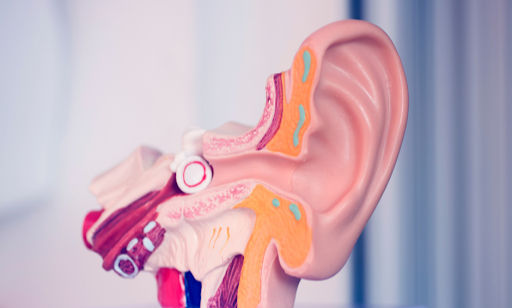Understanding Hearing Loss: Causes, Symptoms, and Diagnosis
- Kim Dowling

- Jun 27, 2024
- 3 min read
Have you ever wondered how our ears work or what causes hearing loss? Hearing loss is more common than you might think and can affect people of all ages. In this article, we will delve into the fascinating world of hearing, exploring its delicate mechanisms, the various causes of hearing loss, common symptoms to watch out for, and why it's crucial to seek professional evaluation and diagnosis. So, let's tune in and learn more about this important aspect of our health!
The Basics of Hearing
Before we dive into the details of hearing loss, let's start with a quick overview of how our ears function. Our ears are remarkable organs that allow us to perceive sound waves and interpret them as meaningful sounds. The ear consists of three main parts: the outer ear, middle ear, and inner ear.

Imagine your ear as a sophisticated receptor that captures sound waves and converts them into signals that the brain can understand. The outer ear collects sound waves and channels them into the ear canal, where they strike the eardrum (tympanic membrane) in the middle ear. This sets the tiny bones in motion, transmitting the vibrations to the cochlea in the inner ear. Here, thousands of hair cells convert these vibrations into electrical signals that are sent to the brain via the auditory nerve, enabling us to hear and process sounds.
Common Causes of Hearing Loss
Now that we understand how hearing works, let's explore the potential reasons why this process can be disrupted, leading to hearing loss. There are several factors that can contribute to hearing impairment, including:
Age-related Hearing Loss (Presbycusis): As we age, the sensitive hair cells in the inner ear can become damaged or lose function over time, resulting in gradual hearing loss.
Exposure to Loud Noise: Continuous exposure to loud noises, whether from machinery, concerts, or prolonged headphone use at high volumes, can damage the delicate structures of the inner ear.
Infections or Diseases: Certain infections like otitis media (middle ear infection) or diseases such as meningitis can cause hearing loss, especially if left untreated.
Genetic Factors: Some types of hearing loss can be hereditary, passed down through family genes.
Earwax Buildup: Blockage caused by excessive earwax can prevent sound waves from reaching the eardrum, leading to temporary hearing loss.

Understanding these causes is crucial in taking preventive measures to protect our hearing health. Avoiding prolonged exposure to loud noises and seeking timely treatment for infections can significantly reduce the risk of developing hearing loss.
Recognizing the Signs and Symptoms
How do you know if you or someone you know might be experiencing hearing loss? The signs and symptoms can vary depending on the cause and severity of the condition. Here are some common indicators to watch out for:
Difficulty understanding conversations, especially in noisy environments
Frequently asking others to repeat themselves
Turning up the volume on electronic devices to higher levels
Feeling like people are mumbling or speaking unclearly
Ringing or buzzing noises in the ears (tinnitus)
If you notice any of these symptoms persisting, it's important to seek professional evaluation from an audiologist or ENT specialist.

Importance of Professional Evaluation and Diagnosis
Seeking professional help is paramount when it comes to addressing hearing concerns. A comprehensive evaluation by a trained audiologist can accurately diagnose the type and degree of hearing loss. This evaluation may include:
Physical examination of the ears and hearing system
Audiometric tests to measure hearing sensitivity
Speech tests to assess how well you understand spoken words
Additional tests like tympanometry to evaluate middle ear function

Once diagnosed, the audiologist can recommend appropriate treatment options based on the specific cause and severity of hearing loss. These treatments may range from hearing aids and cochlear implants to medical interventions or surgical procedures, depending on the individual's condition.
Conclusion
In conclusion, understanding hearing loss involves recognizing its potential causes, being aware of its symptoms, and most importantly, seeking professional evaluation and diagnosis. Our ability to hear connects us to the world around us, enabling us to communicate, learn, and enjoy life to the fullest. By taking proactive steps to protect our hearing and addressing any concerns promptly, we can preserve this precious sense for years to come.
Remember, if you suspect any changes in your hearing abilities or notice signs of hearing loss in a loved one, don't hesitate to reach out to a hearing healthcare professional. Let's keep our ears tuned in and our lives filled with the beautiful symphony of sounds!
"By Daniel Kim"





Comments